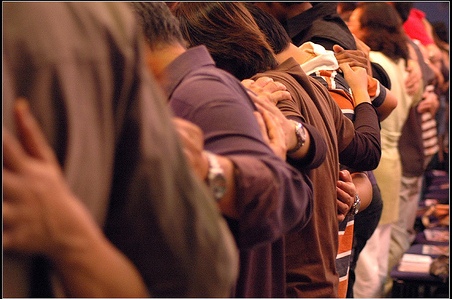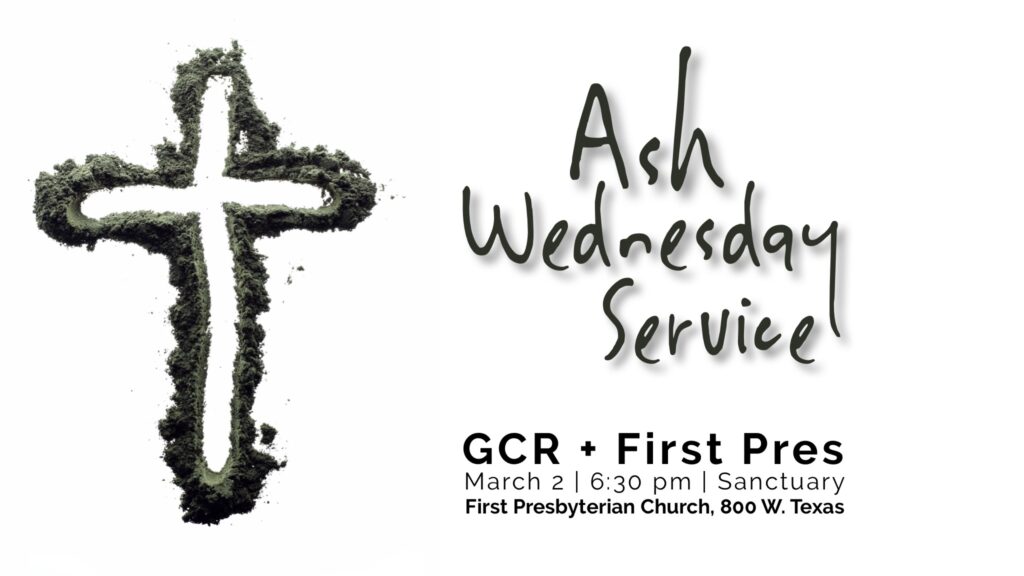The Texas Rangers scored more runs yesterday than the Cowboys scored points. The Rangers have won four straight playoff games on the road against the AL’s top two winningest teams and are one win away from advancing to the ALCS for the first time since the heartbreak of 2011. In the meantime, can we all stop putting the Cowboys in the same category as the Eagles and 49ers in the NFC? Clearly, it’s not even close.
~~~~~~~~~~~~~~~~~~~~~~~~
In preparing for this weekend’s GCR 60th Anniversary and Homecoming, I’ve been reading old bulletins from the North A CofC that planted GCR back in 1963. Greg Fleming, the preacher at the North A / Downtown Church, has been a valuable resource as I piece together all that shared history. More than half the North A congregation moved to GCR when it opened. When the first GCR elders were ordained, there were shepherds and representatives from North A, Fairmont, Cherry Lane, and a couple other Midland CofCs present in a show of unity and support. One gets the sense that the Churches of Christ in this town used to demonstrate a strong unity. We once believed in and felt our common bonds and purpose.
I asked Greg what it would take to re-ignite that kind of unity here in our immediate local context. Never mind the broader picture of Churches of Christ, what about just here in Midland-Odessa? Could we remember our common past and come together for the sake of the Kingdom to which we all belong? Is it possible? Could our Lord work through our two congregations to foster some holy reconciliation in a spirit of Christian love? I’m up for anything when it comes to breaking down walls and uniting in Christ. As you know, I’m working hard toward ecumenical worship and service partnerships between GCR and our brothers and sisters at First Baptist, First Pres, and First Methodist. What about our own CofCs?
Greg responded with this paragraph from Elisha E. Sewell, published in the old Gospel Advocate in 1923:
“We tell others that we can all see the Bible alike; that trouble is, we differ, not on what it says, but on the inferences we draw therefrom… Yet, while preaching the truth to others, we are continually differing among ourselves, not on what the Bible says, but on the inferences we draw therefrom. We draw inferences concerning Bible colleges, the second coming of Christ, Bible-school literature, individual communion cups, and numerous other things; and instead of discussing these matters in a spirit of love and forbearance, we accuse each other of disloyalty to the Book, and we want to withdraw fellowship from each other. The remedy for this and the only one, is to change our emphases from that of loyalty to the cause (meaning ‘our plea’) to loyalty to Christ. More love to him will mean more love for each other. Love is the great principle of unity. It succeeds where others fail, and without it all others must fail.”
The Church of Christ “cause” Sewell mentions, our “plea,” is the misguided restoration of the first century Church, the deadly shift we made from starting as a bold Christian unity movement that accepted all who claimed Christ Jesus as Lord to becoming a church restoration movement that drew lines and wrote policies that divided and excluded followers of Jesus. Yuk.
More love to him would mean more love for one another. A better grasp of God’s grace for us would result in more grace for one another across denominational lines and within our own Christian heritage in CofCs. Is it too late?
The time is coming — it’s already here in many ways — in which we will not have the luxury of calling ourselves Baptists, Methodists, Disciples, or Churches of Christ. In the near future, we won’t be divided along denominational lines, we’ll just be thrilled to find another Christian. Period. We’re going to need each other much more than we realize. Someday soon, how we feel about musical instruments and women’s roles will take a backseat to adherence to the rule of faith and a stand for the non-negotiables of the Apostles’ Creed, which has been our Lord’s will all along. I say we lean into it right now. A good way to start would be to reconcile with our own CofC brothers and sisters and our churches in Midland.
Peace,
Allan








Recent Comments